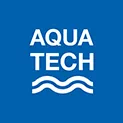The World Bank has launched two Water Innovation Platforms to address the technology gap in the sector and bring innovations to the water supply and sanitation services.
Connecting innovations to the water providers
The World Bank has announced the launch of two Water Innovation Platforms (WIPs) to address the technology gap in the sector and bring innovations to the water supply and sanitation services (WSS).
These WIPs have been designed based on the utilities’ key challenges, with the aim to help facilitate the appropriate technology adoption.
To date, two WIPs have been launched in Africa and Latin America and the Caribbean.
The World Bank said following an initial selection of WIP participants for each region, a technology needs assessment was carried out to identify both the challenges faced by utilities that could be addressed by a technological solution.
The broader ecosystem challenges of accessing and scaling new technologies within local WSS markets were also taken into account.
In Africa, utilities identified two key priorities: energy demand reduction and the reduction of non-revenue water (NRW).
This compared to Latin America and the Caribbean, where utilities wanted to focus on identifying and repairing leaks alongside deploying internet of things (IoT) solutions for real-time system monitoring as their top priorities.
The fourth industrial revolution
The World Bank said “today’s water utilities are stuck between a rock and a hard place”.
Utilities are being asked to provide more resilient, efficient, and sustainable WSS services to more people than ever before, all while operating in an economically constrained environment that has slowed investments in the water sector worldwide.
It cites the impacts of climate change, the needs of the growing urban populations, and the realities of the largest economic crisis seen in more than a century as reasons for the barriers between utilities and the adoption of innovations.
The innovation ecosystem in the water sector found that it frequently fails to effectively bring the know-how of innovators together with potential end-users.
Analysis by the World Bank’s team of the innovation ecosystem in the water sector found that it frequently “fails to effectively bring the know-how of innovators together with potential end-users”.
So while new technologies have become abundant in the water space, adoption among water and wastewater utilities has remained slow.
Other groups making innovation accessible
Last year, Newcastle University and partners from Northumbrian Water Group opened a large-scale research facility in Europe to improve how wastewater is treated.
Based at Northumbrian Water's sewage treatment plant in Birtley, UK, the Biological Engineering: Wastewater Innovation at Scale (BEWISe) facility aims to accelerate the uptake of innovations.
The new BEWISe collaboration hopes to break down the barriers to innovation.
Just under 10 per cent of the water technology innovations have a successful application.
It’s estimated that just under 10 per cent of water technology innovations have a successful application and even then the impact is regularly disappointing, Paul O’Callaghan, founder of BlueTech Research previously told Aquatech Online.
The next stage in the World Bank WIP programme will be to select utility-technology matches in each region that will receive more targeted support on technology adoption.
According to the organisation, lessons learned from previous efforts in this space revealed that although initiatives are often successful in connecting technology companies and utilities, translating this interest into a technology pilot remains a major challenge.






